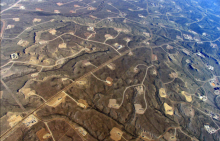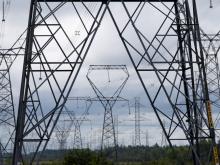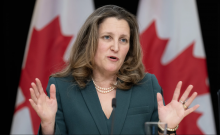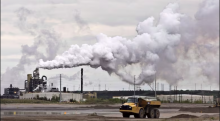One can only imagine the positive buzz these days inside the boardrooms of Canada’s oil companies, as they rake in record profits and plan major expansions of their oil production.
EDMONTON — Lance Colby saw what was coming.
The Alberta government said Wednesday it would open talks on water-sharing between large users as the province's drought situation worsens. But Colby, chair of the Mountain View Regional Water Services Commission in central Alberta, had already begun such discussions.










